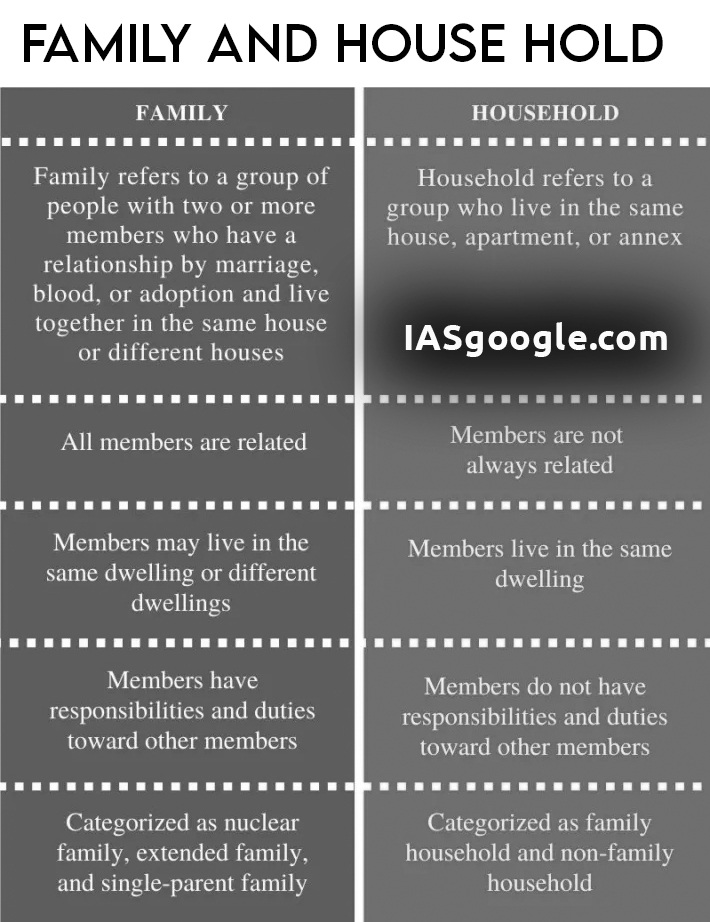- Home
- Prelims
- Mains
- Current Affairs
- Study Materials
- Test Series
Distinguish between family and household as sociological concepts. (UPSC CSE Mains 2016 - Sociology, Paper 1).
- Family is studied by sociologists to understand the primary social institution in India and how this institution is largely interlinked with the culture of Hinduism, agrarian economy, village community and caste system.
- Family is a socially recognized group (usually joined by blood, marriage, cohabitation, or adoption) that forms an emotional connection and serves as an economic unit of society.
- A household is where one individual or a group of people live together at one address and share living space. Individuals that live together when sharing university accommodation would be considered a household rather than a family unit.
- A.M. Shah considers that the joint family may be changing but family jointness is becoming more significant for the life of modern man in Indian society.
- Most family studies in India wishfully ignored the significance of household dimensions of family.
- Iravati Karve emphasizes joint family as a residential unit where people are holding property in common.
- But A.M. Shah considers that this perception of joint family does not make a distinction between household and joint family in many situations. People may hold a joint household but necessarily not constitute a joint family. Therefore, instead of joint family one should look into,
- People living in joint families who despite having economic and political independence, still practice and prefer jointness regularly.
- People may be sharing a joint household but fighting with each other over the question of ancestral property and over the question of power, where jointness and emotional integration is missing out.
- People sharing a joint household may not be agnatically related to each other, however they share strong emotional ties. Therefore, this cannot be considered as a joint family rather it is simple a joint household where emotional ties among members are strong.
- Marxists scholars like I.P. Desai considers that nuclear families are mushrooming both in rural as well as urban India indicating shift of India from feudalism to capitalism.
- A.M. Shah considers that the kinship organization of the nuclear family is greatly variable that one cannot call it either as a product of modernity or capitalism. Nuclear household existing in the form of -
- Two married siblings staying together after the death of their parents.
- Widow mother or widower father living with unmarried children.
- A brother living with a sister who has left in -laws'' space due to some compulsion.
- Other nuclear households where both husband and wife are staying with or without children are driven by different reasons.
- Therefore, A.M. Shah considers that family should be studied from the perspective of a household. Hence, in India joint households, nuclear households are present that may or may not translate into family in many situations.
 Household dimension to family offers a new direction to sociological research redefining our earlier perception of family as a property holding body and a political institution where emotional ties among people are strong.
Household dimension to family offers a new direction to sociological research redefining our earlier perception of family as a property holding body and a political institution where emotional ties among people are strong.









 Latest News
Latest News
 General Studies
General Studies